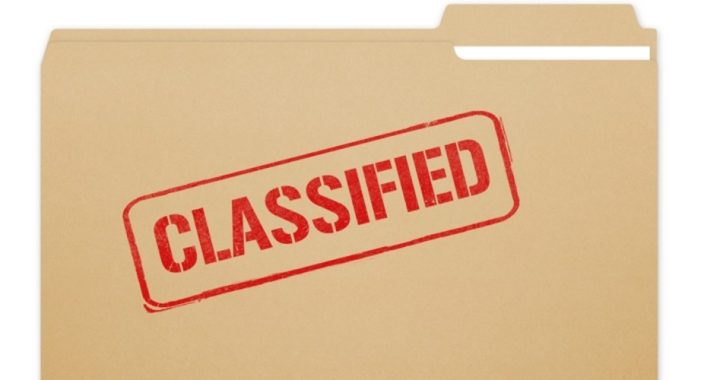
Candidate Donald Trump said of Hillary Clinton’s e-mail scandal, “This corruption and collusion is just one more reason why I will ask my attorney general to appoint a special prosecutor.” He later upped the ante with the declaration, “She has to go to jail.” Now, it appears that the Trump State Department is working to keep the e-mails secret.
On May 5, Judicial Watch issued a press release announcing that
U.S. District Judge Amy Berman Jackson ordered the U.S. Department of State to turn over to the watchdog organization “eight identical paragraphs” of previously redact material in two September 13, 2012, Hillary Clinton e-mails regarding phone calls made by President Barack Obama to Egyptian and Libyan leaders immediately following the terrorist attack on the U.S. mission in Benghazi. Both e-mails had the subject line “Quick Summary of POTUS Calls to Presidents of Libya and Egypt” and were among the e-mails stored on Clinton’s unofficial e-mail server.
Immediately, the State Department asked Judge Jackson so reconsider her order, claiming that due to an internal “mistake” the office failed to label the e-mails “classified.” If so labeled, Clinton’s e-mails would be exempt from production under FOIA Exemption B(1). Responding to State’s request, Judicial Watch filed documents averring that the Trump administration’s failure was not a mistake, but rather a deliberate attempt by officials at the State Department to shield Hillary Clinton and themselves by “avoiding identifying e-mails on Clinton’s unofficial, non-secure e-mail server as classified.”
In other words, the e-mails were originally said to be “unclassified” so then-Secretary Clinton would not be guilty of having classified material on her private server, but now that people want to see the e-mails, they are said to be “classified,” and were only mistakenly labeled “unclassified.”
According to the press release, “Judicial Watch’s filing cites an interview of an FBI employee who told federal investigators that top State Department official Patrick Kennedy pressured the FBI to keep Clinton’s e-mails unclassified. The employee told the FBI he ‘believes STATE ha[d] an agenda which involves minimizing the classified nature of the CLINTON emails in order to protect STATE interests and those of CLINTON.’”
The group’s filing also
cites an interview of a State Department employee who told the FBI that the State Department’s Office of Legal Counsel interfered with the FOIA processing of e-mail from Secretary Clinton’s server, instructing reviewers to use Exemption B(5) (deliberative process exemption) instead of Exemption B(1) (classified information exemption). According to the FBI interview:
STATE’s Near East Affairs Bureau upgraded several of CLINTON’s emails to a classified level with a B(1) release exemption . [Redacted], along with [Redacted] attorney, Office of Legal Counsel, called STATE’s Near East Affairs Bureau and told them they could use a B(5) exemption on a upgraded email to protect it instead of the B(1) exemption. However, the use of the B(5) exemption, which is usually used for executive privilege-related information, was incorrect as the information actually was classified and related to national security, which would be a B(1) exemption.
Judicial Watch continues:
Judge Jackson reviewed the documents directly and rejected the government’s contention that the records had been properly withheld under the FOIA B(5) “deliberative process” exemption. Judge Jackson ruled: “the two records, even if just barely predecisional, are not deliberative. [The State Department] has pointed to very little to support its characterization of these two records as deliberative, and the Court’s in camera review of the documents reveals that they do not fall within that category.” The full emails may reveal what former Secretary of State Hillary Clinton and President Obama knew about the September 11, 2012, terror attack on the U.S. mission in Benghazi.
Additionally, Judicial Watch makes the case that the Trump State Department is purposefully sabotaging the group’s effort to hold Hillary accountable, somthing that Trump repeatedly promised to do on the campaign trail. Judicial Watch argues:
An agency’s deliberate withholding of a FOIA claim, either to gain a tactical advantage or, as appears to be the case here, to protect the agency’s interests and those of its former head, is “a motive undoubtedly inconsistent with FOIA’s broad remedial purpose …” It “counsels denying the Government’s request.” The emails in question were sent to then-top administration officials, including Clinton, Deputy Secretary of State William Burns, Under Secretary of State Wendy Sherman, Clinton Deputy Chief of Staff Jacob Sullivan, Special Assistant Robert Russo, and Deputy National Security Advisor Denis McDonough.
Mentioning the apparent increase in the influence of the so-called “Deep State” on the Trump administration, Judicial Watch president Tom Fitton asks, “Does President Trump know his State and Justice Departments are still trying to provide cover for Hillary Clinton and Barack Obama?” Fitton continued, “An extraordinary court ruling that could result in key answers about the Benghazi outrage is being opposed by the Trump administration. This may well be an example of the ‘deep state’ trying to get away with a cover up — if so then the Trump administration must put a stop to it.”
Mike Lofgren, author of The Deep State: The Fall of the Constitution and The Rise of A Shadow Government, defines the Deep State as “the powers-that-be that they believe actually run the country regardless of electoral results: the Wise Men, the Power Elite.”
With this apparent legal maneuvering to keep Hillary Clinton from being held accountable for her betrayal of the Americans who perished at the Benghazi attack, one wonders if the Deep State has pulled even President Trump into their oligarchical orbit.



